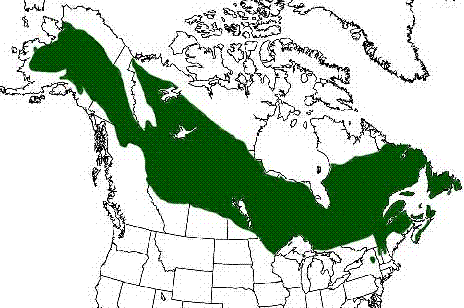Canadian Forest Industry, Environmental Groups Unveil Boreal Forest Agreement
 Print this article | Send to Colleague Print this article | Send to Colleague
This week 21 member companies of the Forest Products Association of Canada (FPAC) and nine leading environmental organizations unveiled the Canadian Boreal Forest Agreement that applies to 72 million hectares of public forests licensed to FPAC members. The Agreement will conserve significant areas of Canada's vast Boreal Forest, protect threatened woodland caribou, and provide a competitive market edge for participating companies.

Under the Agreement, FPAC members, who manage two-thirds of all certified forest land in Canada, commit to the highest environmental standards of forest management within an area twice the size of Germany. Conservation groups commit to global recognition and support for FPAC member efforts. The Agreement calls for the suspension of new logging on nearly 29 million hectares of Boreal Forest to develop conservation plans for endangered caribou, while maintaining essential fiber supplies for uninterrupted mill operations. "Do Not Buy" campaigns by Canopy, ForestEthics, and Greenpeace will be suspended while the Agreement is being implemented.
"The importance of this Agreement cannot be overstated," said Avrim Lazar, president and CEO of FPAC. "FPAC member companies and their ENGO counterparts have turned the old paradigm on its head. Together we have identified a more intelligent, productive way to manage economic and environmental challenges in the Boreal that will reassure global buyers of our products' sustainability. It's gratifying to see nearly a decade of industry transformation and hard work greening our operations is culminating in a process that will set a forestry standard that will be the envy of the world."
Environmental groups, including the three organizations that have been mobilizing large customers towards green products, say the coming together of two traditional adversaries reflects a new commitment to a common goal. Also vital to the agreement have been the efforts of the Pew Environment Group and Ivey Foundation, which worked to support the two sides coming together and to facilitate the negotiations. The Agreement identifies explicit commitments for both sides and sets out a plan that includes:
- Development and implementation of world-leading forest management and harvesting practices
- Completion of joint proposals for networks of protected areas and recovery of species at risk including woodland caribou
- A full life cycle approach to forest carbon management
- Support for the economic future of forest communities and for recognition of conservation achievements in the global marketplace.
Signatory environmental organizations, FPAC, and the Association's companies have begun meetings with provincial governments, First Nations, and local communities across the country to seek their leadership and full participation in advancing the goals of the Agreement. Participants recognize that governments, including First Nation governments, are decision makers within their jurisdictions. The Agreement recognizes that aboriginal peoples have constitutionally protected aboriginal and treaty rights that must be respected and engaged in order for the Agreement to fulfill its objectives.
Forestry companies participating in the Agreement are: AbitibiBowater, Alberta Pacific Forest Industries, AV Group, Canfor, Cariboo Pulp & Paper Co., Cascades Inc., DMI, F.F. Soucy Inc., Howe Sound Pulp and Paper, Kruger Inc., LP Canada, Mercer International, Mill & Timber Products Ltd, NewPage Port Hawkesbury Ltd, Papier Masson Ltee, SFK Pulp, Tembec Inc., Tolko Industries, West Fraser Timber Co., and Weyerhaeuser Co, Limited.
Environmental organizations participating in the Agreement are: Canadian Boreal Initiative, Canadian Parks and Wilderness Society, Canopy (formerly Markets Initiative), the David Suzuki Foundation, ForestEthics, Greenpeace, Ivey Foundation, The Nature Conservancy, and the Pew Environment Group's International Boreal Conservation Campaign. The Hewlett Foundation's support for boreal forest conservation has been critical to the collective efforts of this group, FPAC notes.
|
|

